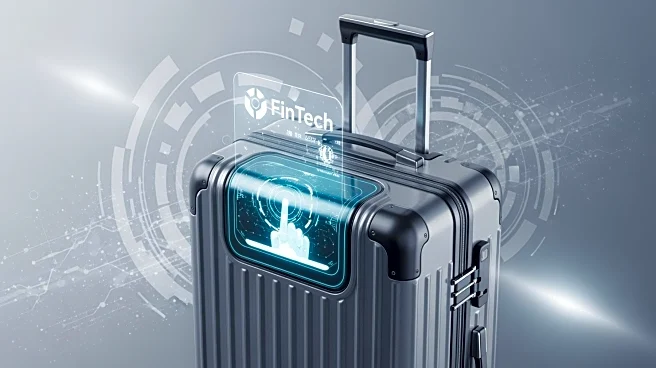What's Happening?
Booking.com is advancing its integration of FinTech solutions to create more seamless travel experiences. Daniel Marovitz, Senior Vice President of FinTech at Booking.com, discussed the company's strategy
to merge technology and finance, aiming to reduce friction in travel processes. This includes expanding their payments platform and leveraging AI-driven personalization to adapt to changing consumer expectations. The company has seen significant growth in its payments offering, with payments volumes tripling over the past decade. This development allows travelers to make cross-border, cross-currency transactions more efficiently, enhancing both traveler convenience and partner certainty.
Why It's Important?
The integration of FinTech into travel services is crucial as it addresses the complexities of international transactions, which can be a barrier for travelers. By streamlining payment processes, Booking.com not only improves the customer experience but also supports small businesses globally by ensuring timely and secure transactions. This approach reflects a broader trend in the travel industry towards personalization and convenience, driven by technological advancements. As consumer expectations evolve, companies that can anticipate and meet these needs will likely gain a competitive edge, potentially reshaping the travel landscape.
What's Next?
Booking.com plans to continue embedding its vision for a connected trip, focusing on smarter payments and AI-led personalization. The company is set to explore these themes further at the Skift Global Forum East, where discussions will center on how FinTech can redefine travel. This forward-looking approach suggests ongoing innovation in payment solutions and personalized travel experiences, which could lead to new industry standards and practices.
Beyond the Headlines
The deeper implications of Booking.com's FinTech integration include potential shifts in consumer behavior towards more cashless transactions and personalized travel experiences. This could influence global travel trends, encouraging more sustainable and efficient travel practices. Additionally, the focus on technology-driven solutions highlights the increasing importance of data privacy and security in the travel industry, as companies must balance personalization with protecting consumer information.










